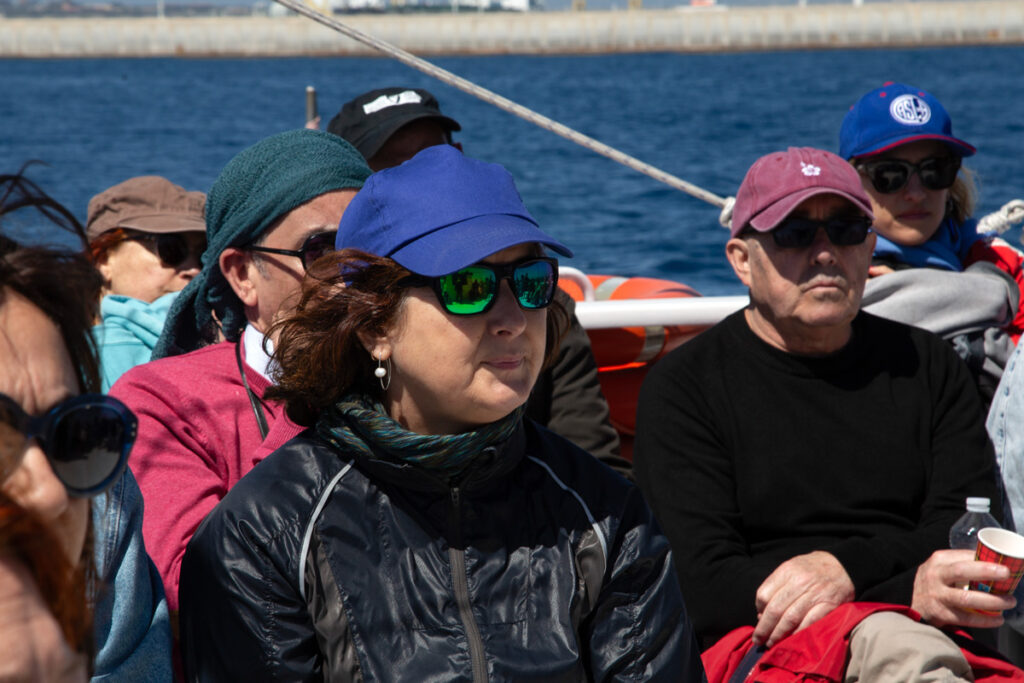
On the bright and sunny morning of Saturday April 20th 2024, Núria Güell and I, accompanied by a group of 55 other excursionists, boarded La Golondrina – a traditional passenger vessel – from the Escales Reials in the Port of Tarragona. Together, we embarked on a ‘cruise’ of the port and its anchorage area. We toured ships operating under flags of convenience – considering these ships as ‘floating territories’ of the countries whose flag they flew. We approached territories of Malta, Panama, Liberia, Bahamas, Marshall Islands and Togo. Our ‘cruise’ was led by a professional tour guide, focusing on how territorial notions such as ‘the rule of law’, citizenship, homeland, human rights, become elusive at sea – opening an obscure arena whose blurred regulator frameworks foster turbo-capitalism.
Innocent Passage is part of a wider artistic research that Núria and I jointly initiated in the spring of 2023. Broadly speaking, and recognising that around 90% of global trade in goods and raw materials is currently carried out by sea, we have begun to investigate how the conceptual and legal frameworks that are asserted and defended within Western democratic countries – in relation to the labour, environmental, eco-social, citizenship and fiscal issues that are imposed on land – are sometimes transformed, diminished or ignored in oceanic territories.
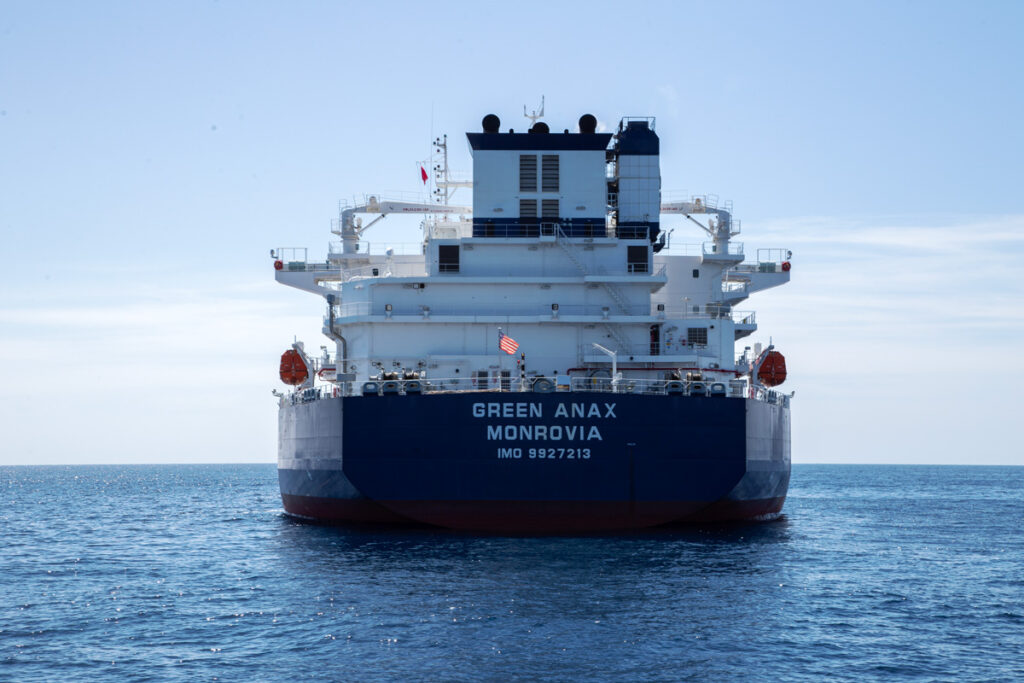
‘Innocent passage’ is a concept within maritime law, that grants a vessel the right to pass through the territorial waters of another state. The ‘right of innocent passage’ is a foundational principle for international trade, commerce, and communication – allowing carriers to efficiently transport goods and resources across oceans. Within international relations, by respecting the ‘right of innocent passage’, a state demonstrates their commitment to international cooperation and peaceful coexistence. This right implies that a coastal state’s criminal jurisdiction should not be exercised on board foreign vessels passing through its territorial waters, unless: it is prejudicial to the security of the coastal state; the consul of the country whose flag the ship flies requests the help of local authorities; or it is necessary for the suppression of illicit narcotics trafficking (United Nations Convention on the Law of the Sea – UNCLOS, 1982).
International law requires all vessels to be registered in a host country, determining the flag and laws under which the ship will operate. Each state should then effectively exercise its jurisdiction and control – in administrative, technical and social matters – over ships flying its flag. Although the UNCLOS asserts that there must be a genuine link between the owner of a vessel and its flag, this can be difficult to enforce. Many countries – such as Panama, Liberia, Marshall Islands, Bahamas, Belize – offer ‘open registries’, commonly known as ‘flags of convenience’. These registries afford considerable advantages to ship owners; such as easier and cheaper registration processes, reduced safety and environmental regulations, the ability to employ cheaper foreign labour, and tax exemptions. These ships provide tax and regulation havens where, in some cases, 21st century neocolonialism and slavery practices can be exercised in plain sight.
A site-specific intervention in social space co-created with Núria Güell
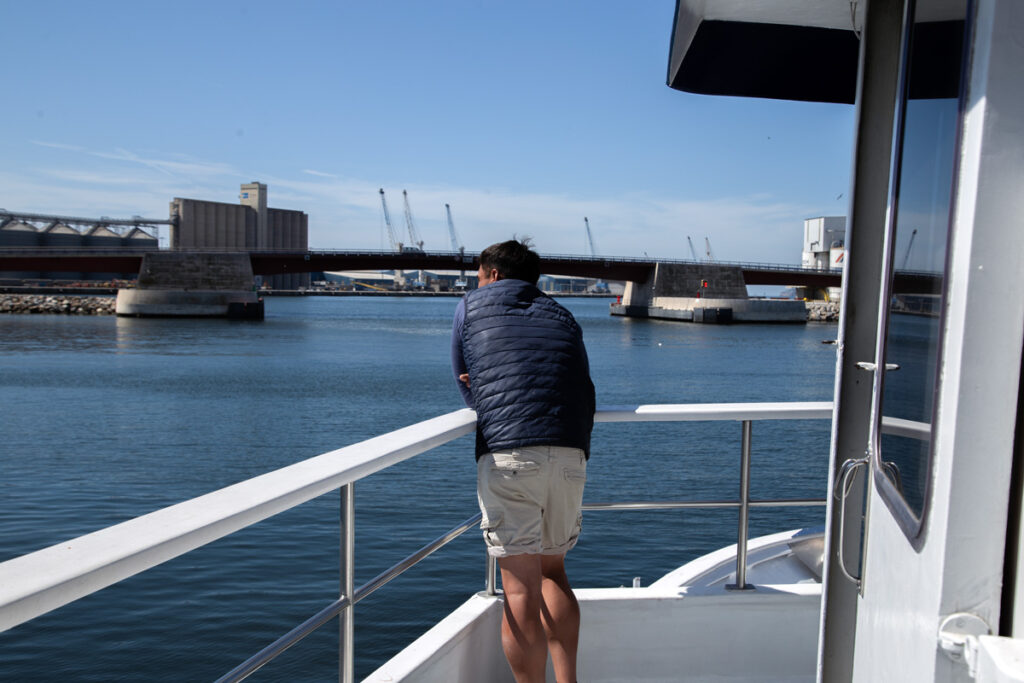
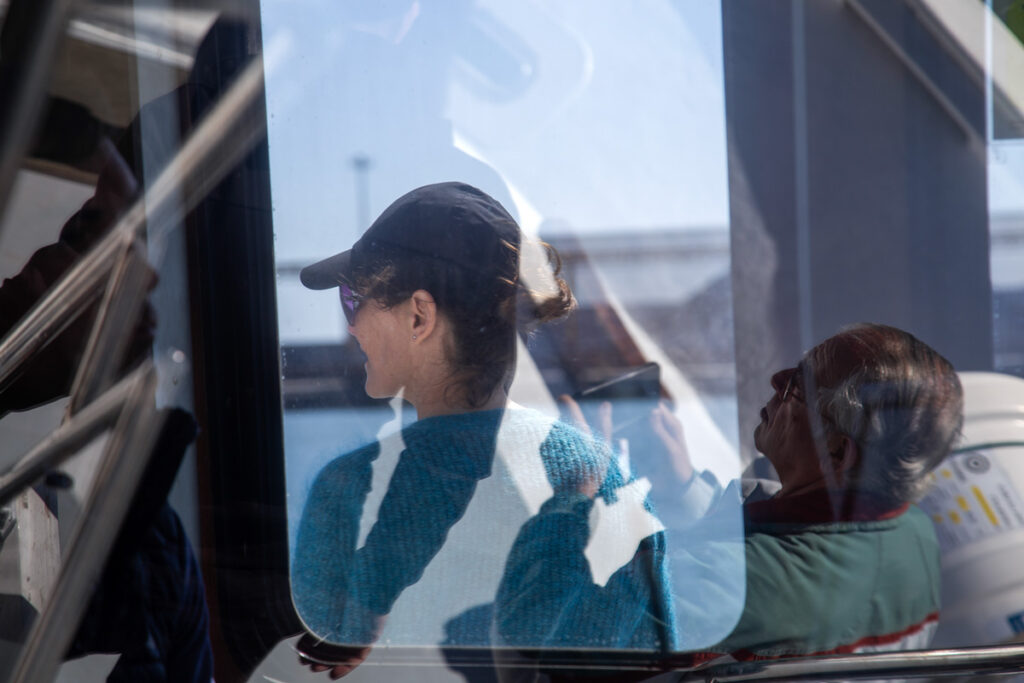
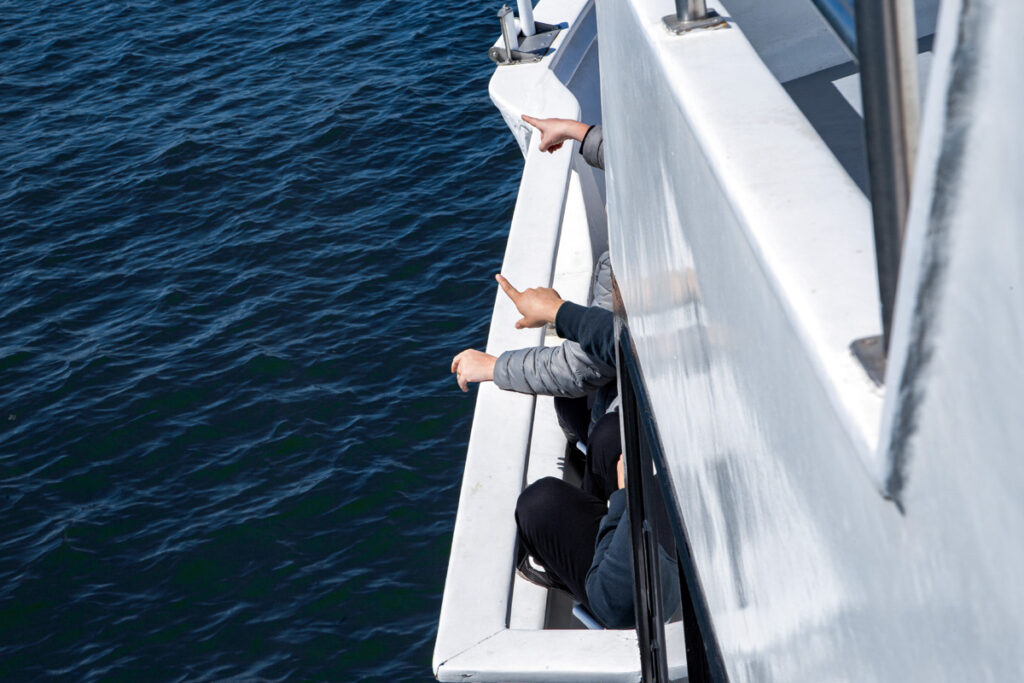
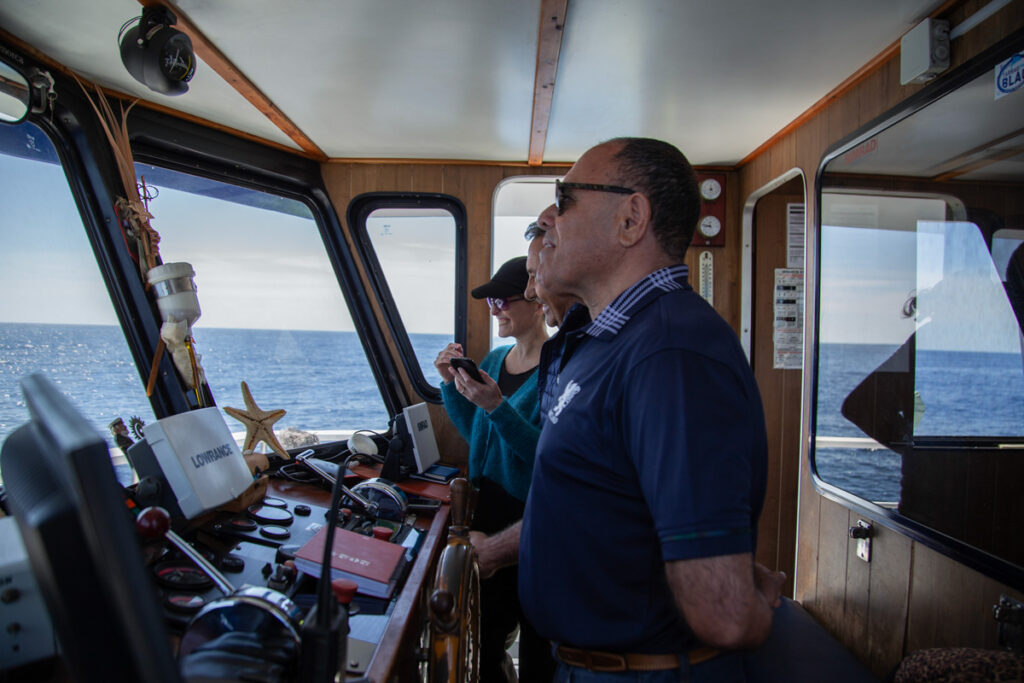
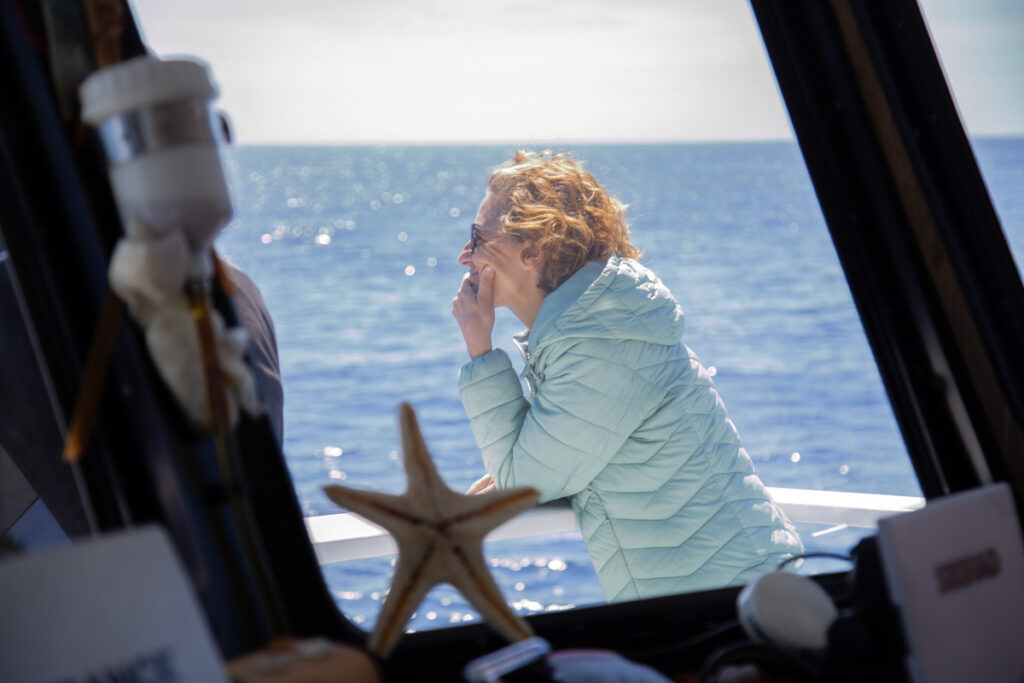
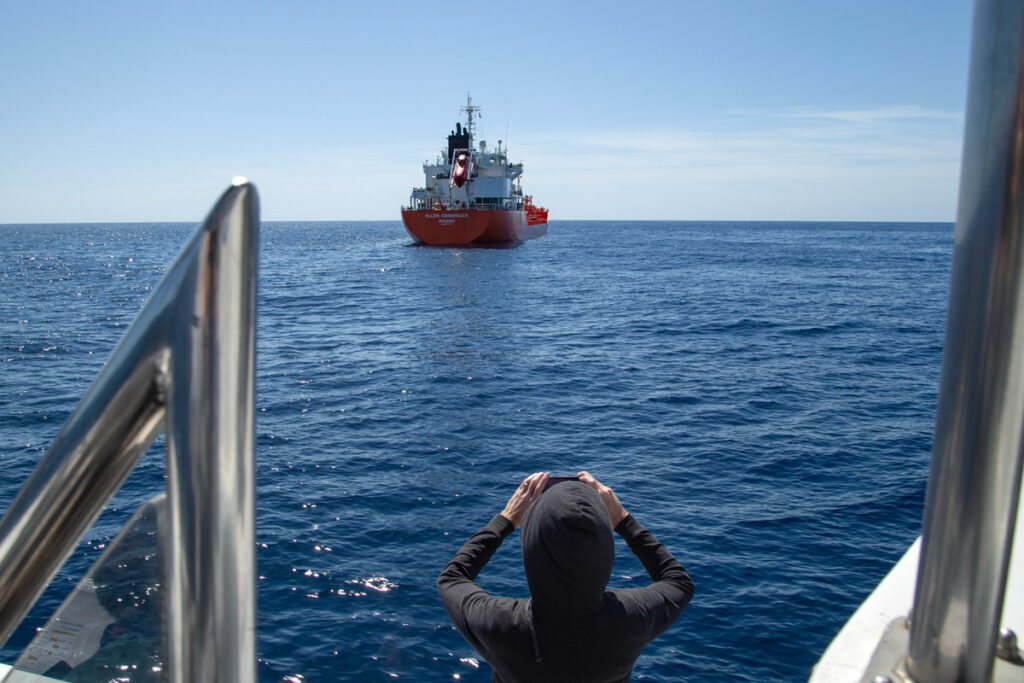
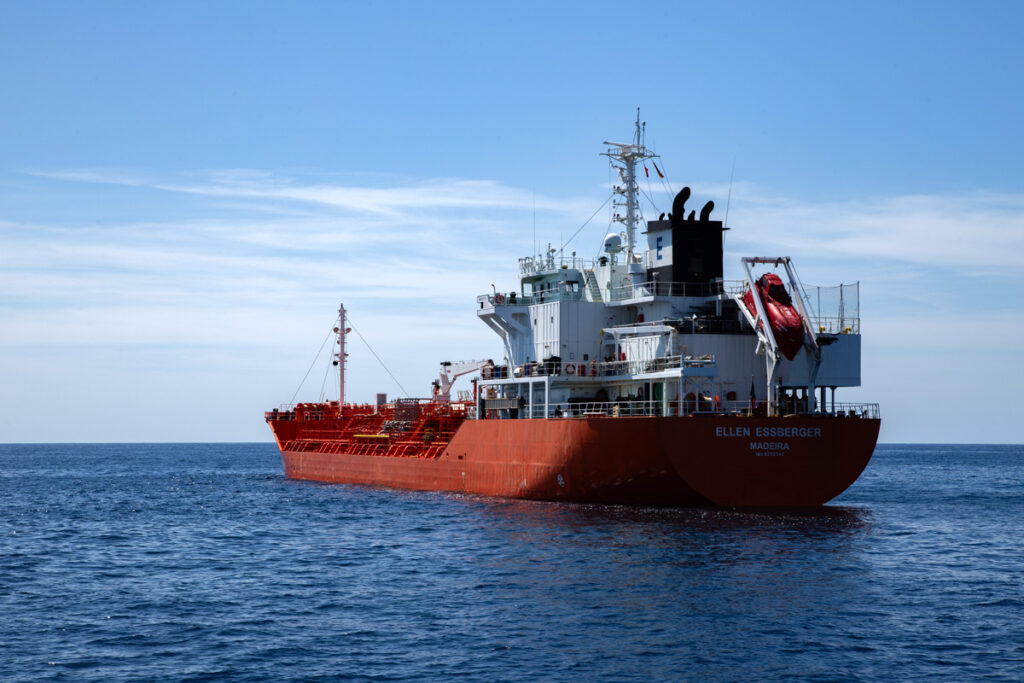
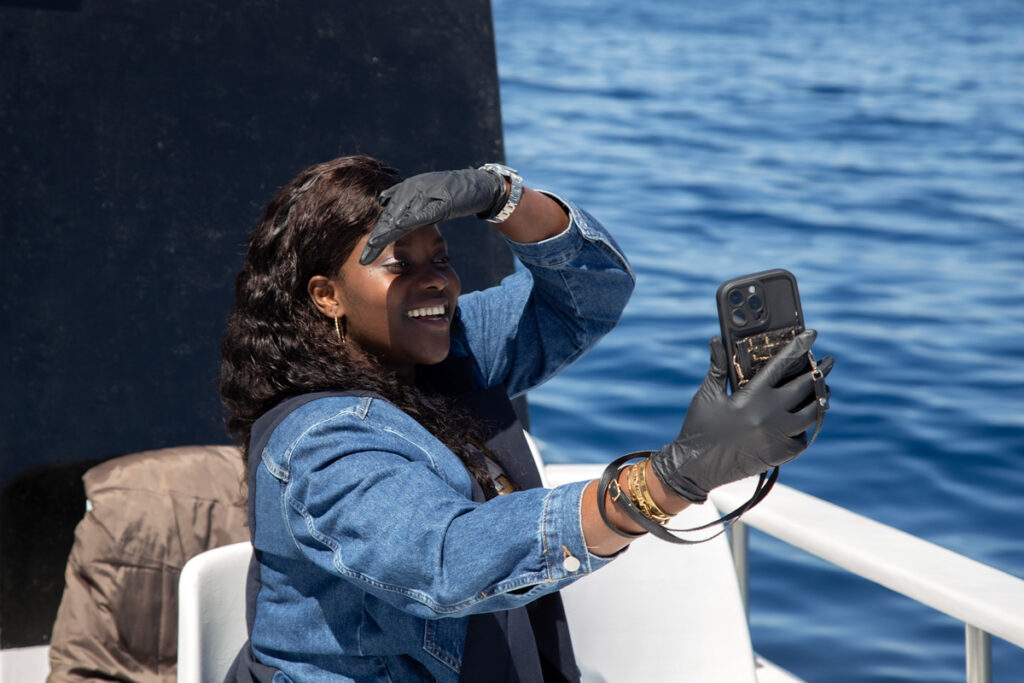
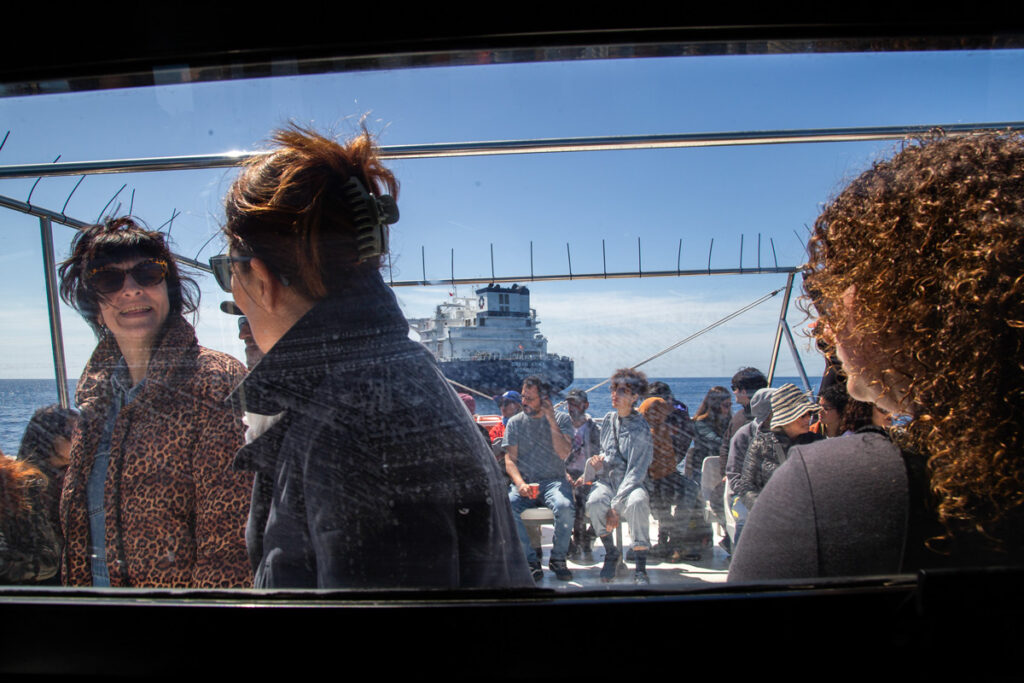
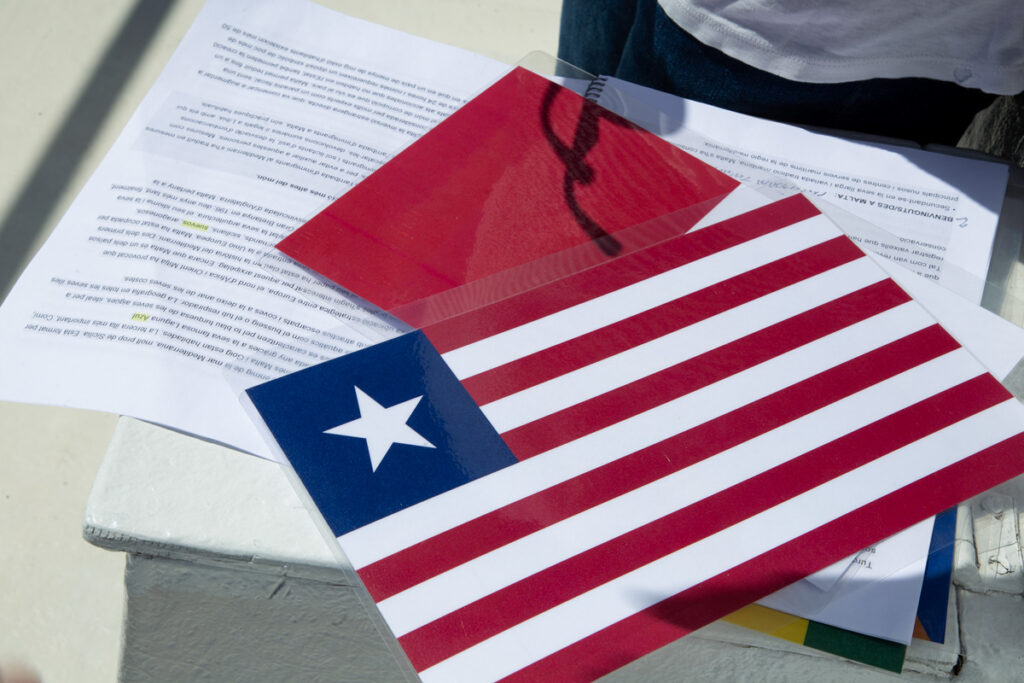
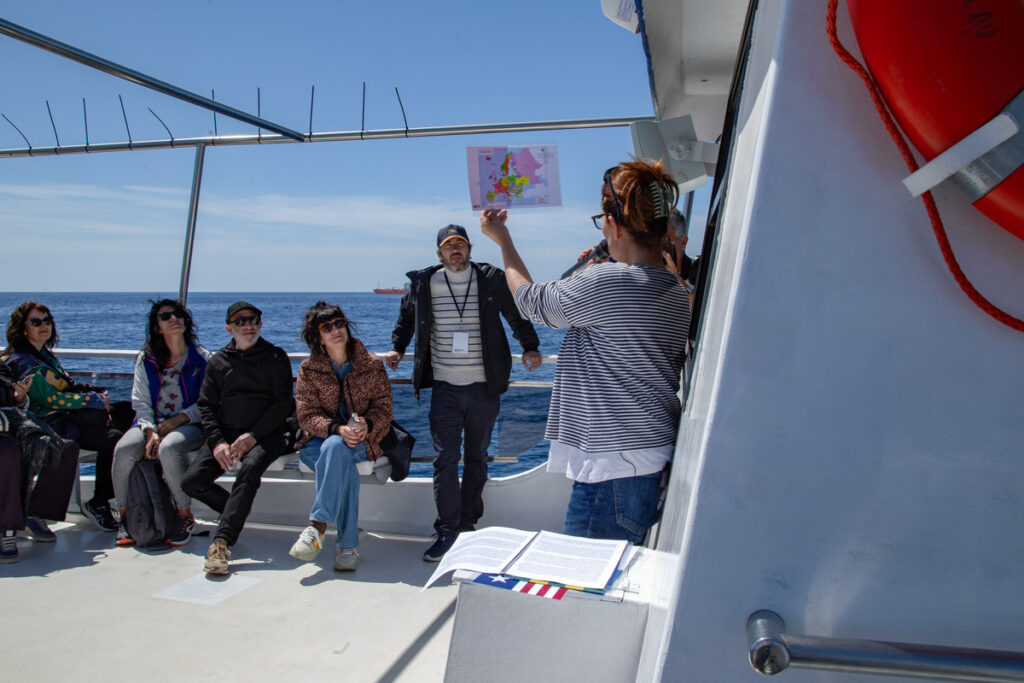
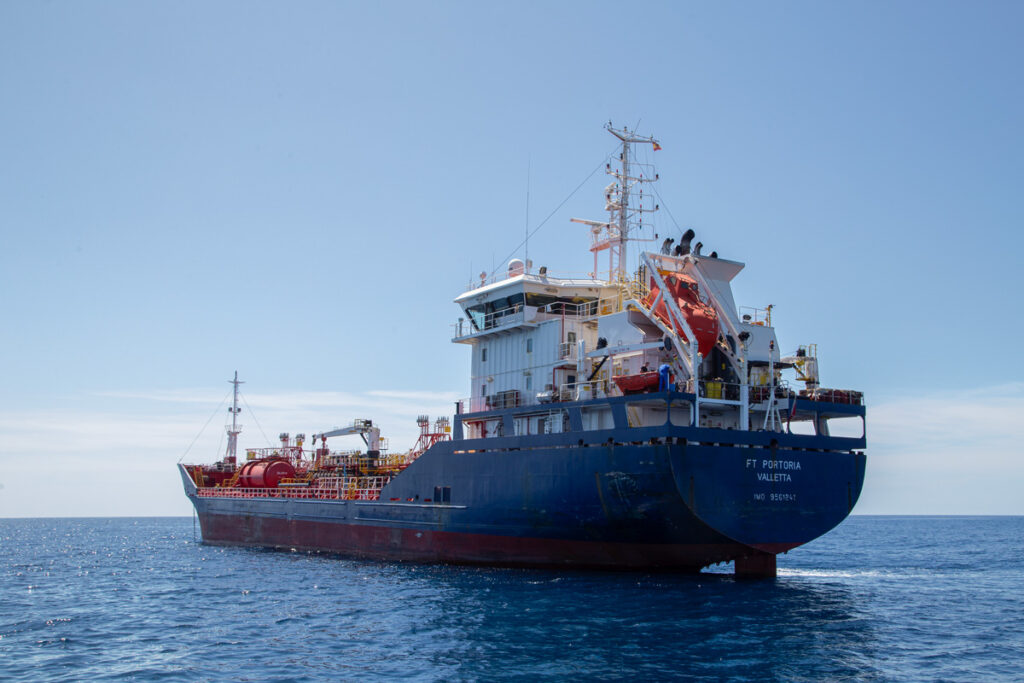
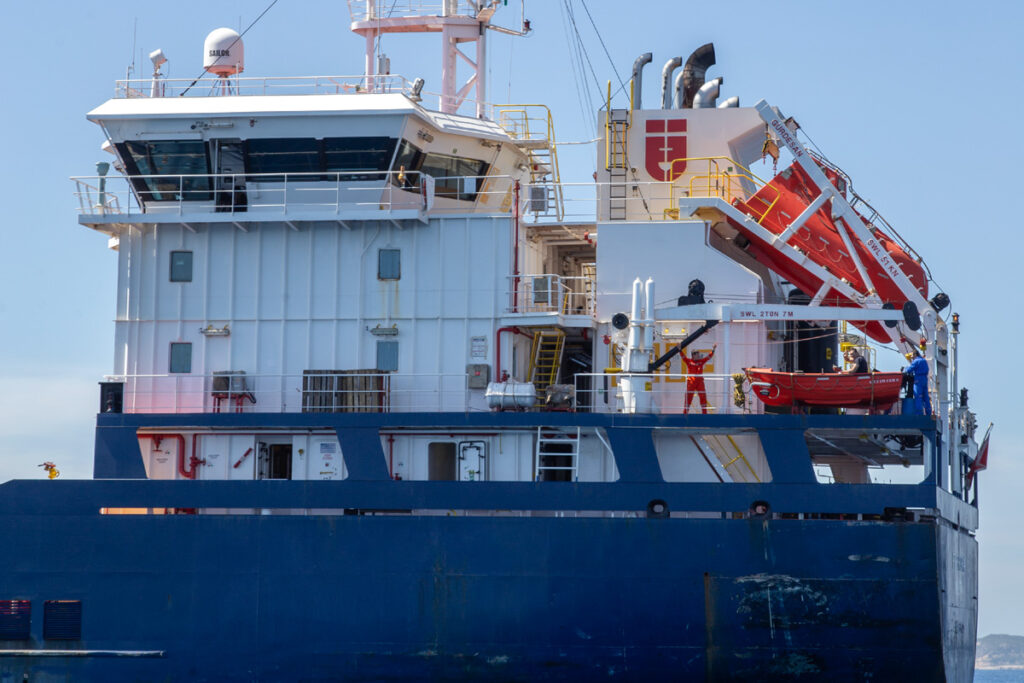
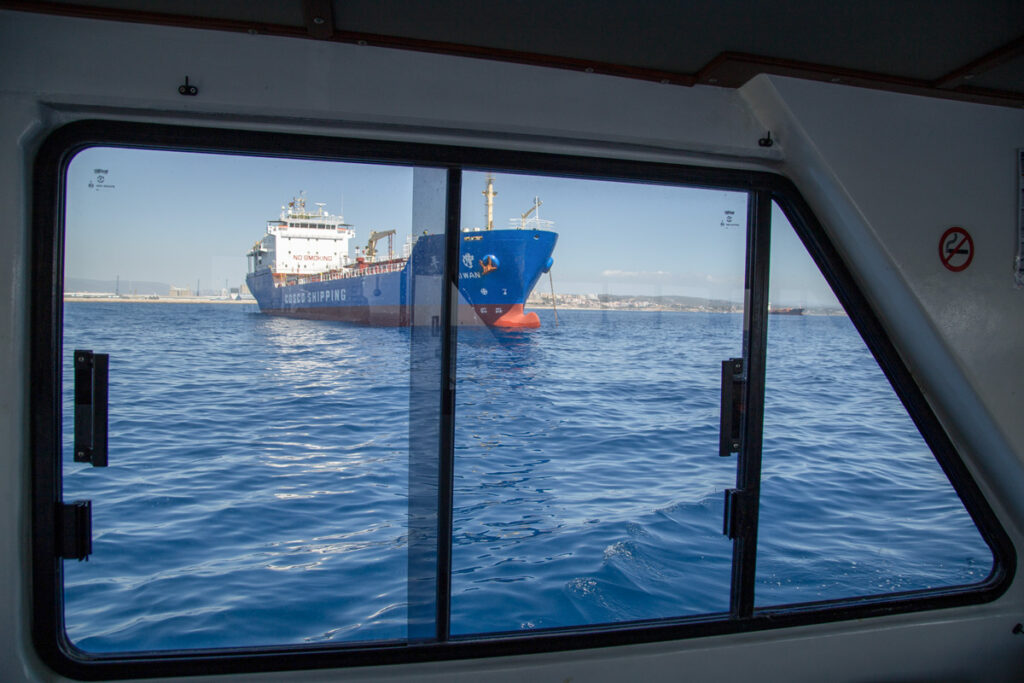
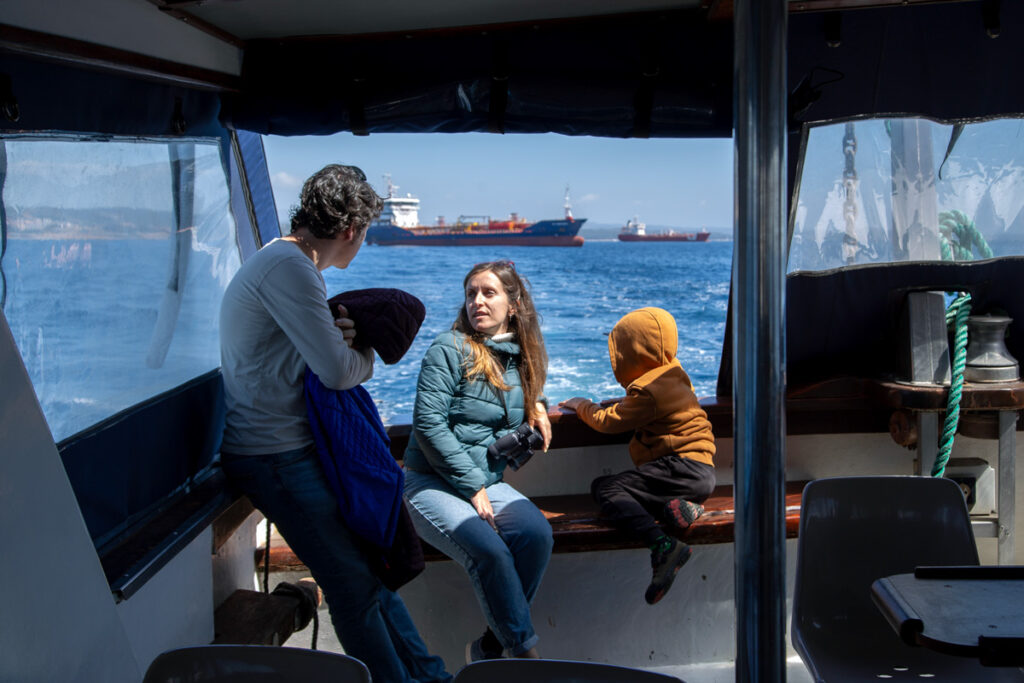
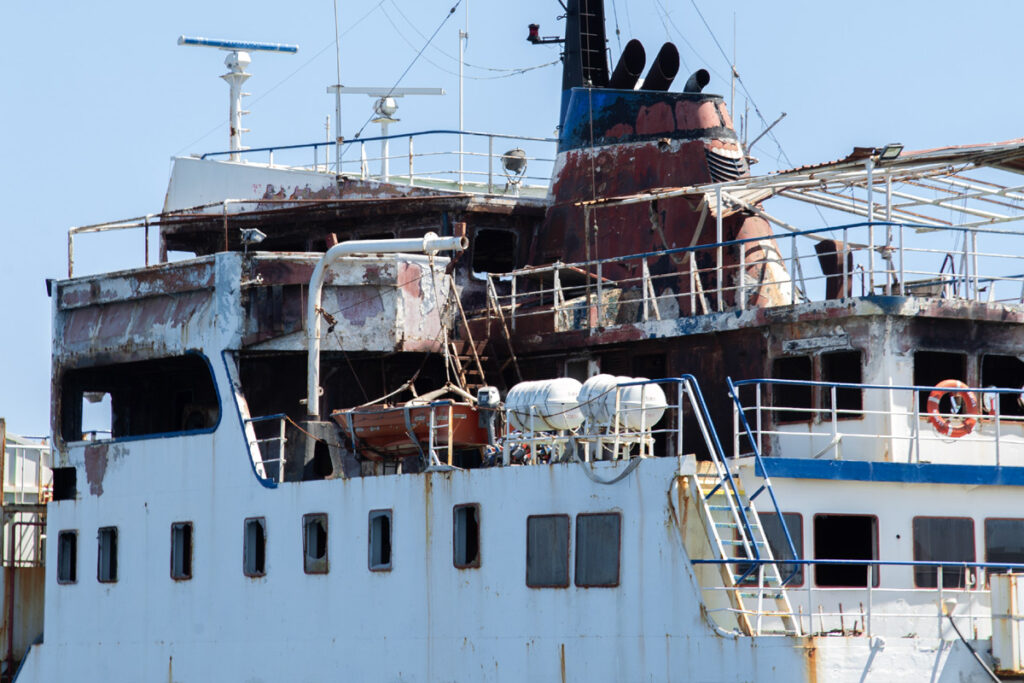
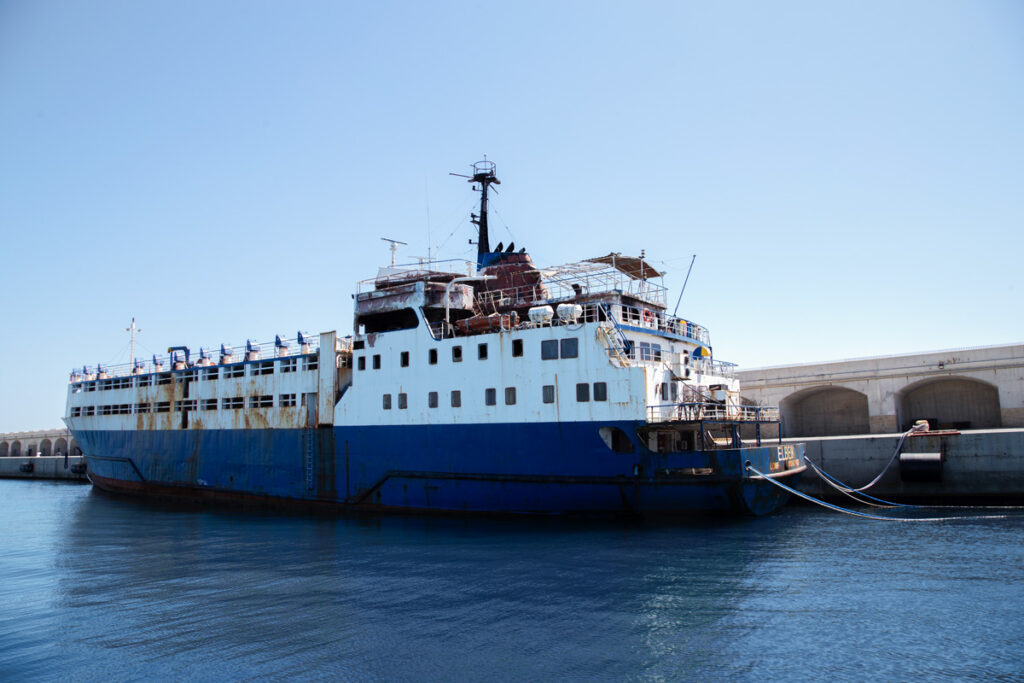
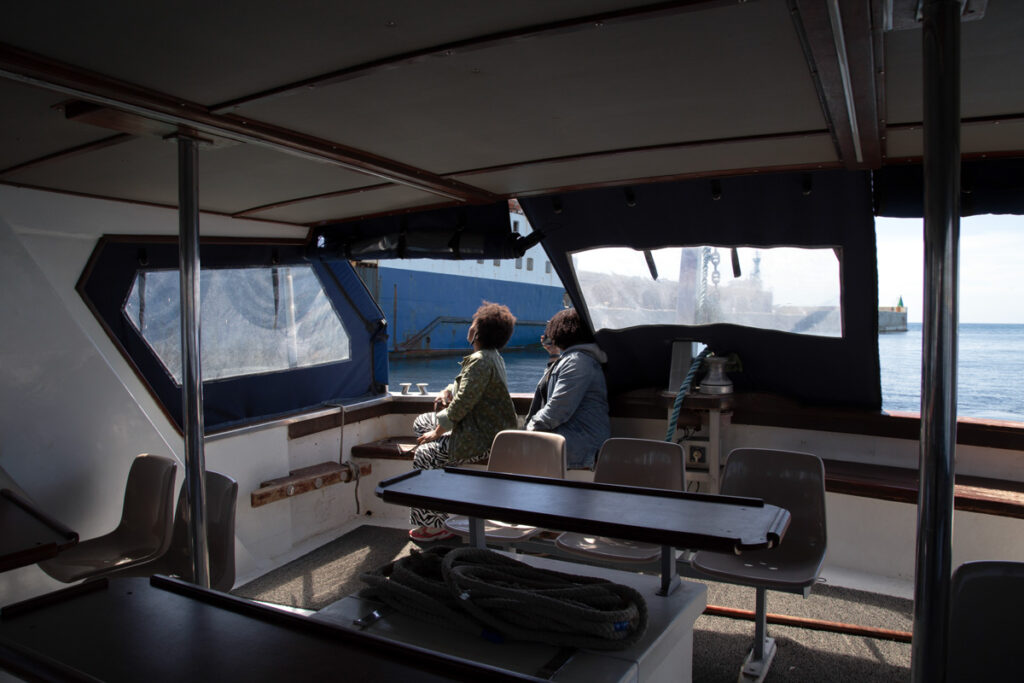
A project commissioned by Mèdol Centre d’Arts Contemporànies de Tarragona. Photos by Mila Ercoli.
